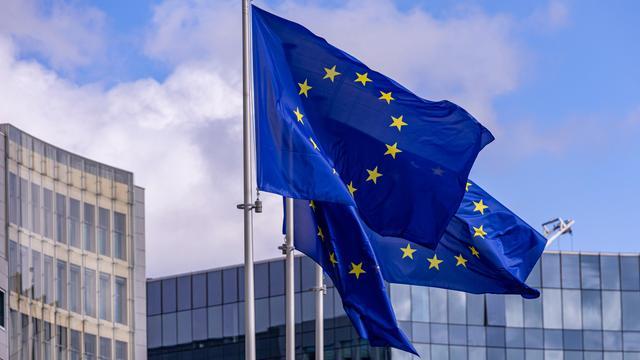The European Union is facing increasing pressure to impose targeted sanctions on Georgia’s political leadership, following the precedent set by the United States. As tensions rise amid ongoing political unrest and concerns over democratic backsliding in the country, policymakers in Brussels are urged to take a firmer stance. Advocates argue that coordinated sanctions against Georgian officials responsible for undermining democratic institutions could strengthen the EU’s influence in the region and reinforce its commitment to upholding democratic values in emerging European states.
EU urged to align with US on sanctions against Georgian leadership
Recent developments have intensified calls for the European Union to impose sanctions on key members of Georgia’s political elite. This move comes in the wake of the United States taking a firm stance against Georgian leadership, citing concerns over democratic backsliding and the erosion of rule of law. Observers argue that a unified Western approach is crucial to uphold democratic norms and to send a clear message that undemocratic behavior will not be tolerated.
Advocates for EU sanctions highlight several pressing issues:
- Crackdowns on opposition figures and independent media outlets.
- Judicial interference and weakening of institutional checks and balances.
- Undermining electoral integrity and transparency.
By aligning with the US, the European Union could leverage a more coherent strategy aimed at encouraging reform and accountability within Georgia’s ruling circles.
| Sanctioning Body | Current Measures | Targeted Officials |
|---|---|---|
| United States | Visa bans, asset freezes | Top ruling party members, judiciary figures |
| European Union (proposed) | Pending decision | Political leadership, security officials |
Impact of targeted sanctions on Georgia’s political landscape and democratic reforms
Targeted sanctions have increasingly shaped Georgia’s political terrain, acting as a catalyst for both political accountability and democratic reforms. By imposing financial restrictions and travel bans on key political figures associated with corruption and undermining democratic norms, the sanctions exert pressure that limits the capacity of entrenched elites to maintain unchecked power. This approach has not only stigmatized malfeasance but has also emboldened civil society actors and opposition forces striving to challenge authoritarian tendencies. As a result, the political landscape has seen subtle shifts, including increased governmental transparency efforts and cautious steps toward electoral integrity, though progress remains fragile.
Key effects of targeted sanctions include:
- Reduction in impunity for political elites involved in corruption
- Heightened international scrutiny and demands for democratic accountability
- Empowerment of opposition groups and independent media
- Increased dialogue on reforms within political institutions
| Sanction Type | Political Outcome | Democratic Reform |
|---|---|---|
| Travel bans | Isolation of corrupt officials | Encouragement of ethical leadership |
| Asset freezes | Reduction of illicit funding | Strengthening anti-corruption measures |
| Targeted visa restrictions | Disincentive for electoral manipulation | Promotion of free and fair elections |
Recommendations for the European Union to bolster accountability and regional stability
To effectively enhance accountability among Georgian leaders, the European Union must adopt a firmer stance echoing recent US measures. Targeted sanctions, including travel bans and asset freezes, should be swiftly implemented against officials undermining democratic governance and the rule of law. These punitive actions serve a dual purpose: signaling clear consequences for anti-democratic behavior and reinforcing the EU’s commitment to democratic principles in its neighborhood.
Moreover, the EU should complement sanctions with strategic initiatives aimed at fostering regional stability. Such measures include:
- Strengthening monitoring mechanisms to ensure transparent electoral processes in Georgia.
- Enhancing diplomatic engagement with Georgian civil society and reform-minded actors.
- Increasing financial support for governance reforms and anti-corruption programs.
- Coordinating with NATO and other partners to secure the broader Eastern European geopolitical environment.
| Recommended Action | Expected Outcome |
|---|---|
| Targeted sanctions on key officials | Deterrence of authoritarian behavior |
| Support for democratic institutions | Resilient governance frameworks |
| Expanded diplomatic ties with civil society | Broader public legitimacy |
| Regional security cooperation | Stabilized geopolitical environment |
The Conclusion
In light of mounting concerns over democratic backsliding and governance issues in Georgia, calls for the European Union to adopt a firmer stance alongside the United States are gaining momentum. As Emerging Europe highlights, implementing targeted sanctions against Georgian leaders could serve as a necessary signal of the EU’s commitment to upholding democratic values and the rule of law in its neighborhood. Whether Brussels will follow Washington’s example remains to be seen, but the ongoing developments will undoubtedly shape the future trajectory of EU-Georgia relations.













